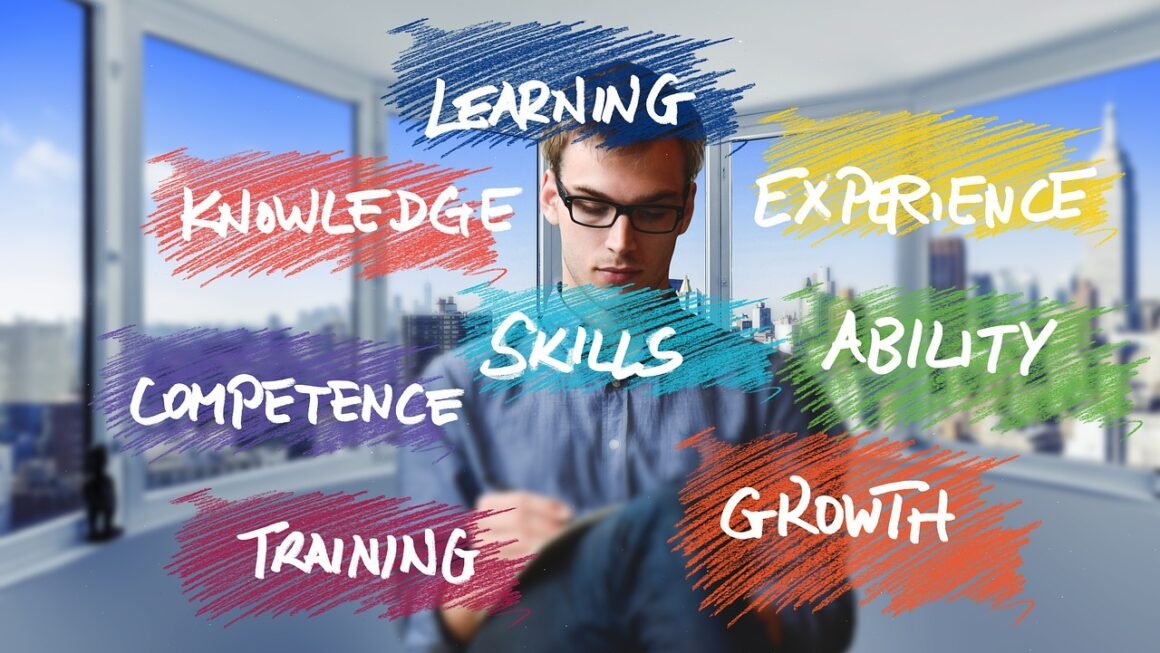The rise of remote work has fundamentally transformed the professional landscape, offering unparalleled flexibility and autonomy. But with this shift comes new challenges, including maintaining productivity, fostering collaboration, and ensuring employee well-being. Enter Artificial Intelligence (AI), a powerful tool poised to revolutionize remote work practices and unlock a new era of efficiency and engagement. This blog post delves into the myriad ways AI is reshaping remote work, providing insights and actionable strategies to harness its potential.
Enhancing Communication and Collaboration with AI
AI-Powered Communication Platforms
Effective communication is the bedrock of any successful remote team. AI is enhancing communication platforms by providing real-time translation, sentiment analysis, and automated meeting summaries. This helps bridge language barriers, understand team morale, and ensure that no crucial information is missed.
- Real-time Translation: Platforms like Microsoft Teams and Google Meet now offer real-time translation, enabling seamless communication between team members speaking different languages. This eliminates the need for costly human translators and fosters inclusivity.
- Sentiment Analysis: AI can analyze the tone of written and spoken communication to detect potential issues early. For example, if a team member consistently expresses negative sentiment in their messages, managers can intervene and provide support.
- Automated Meeting Summaries: AI can transcribe and summarize meetings, providing concise notes for those who couldn’t attend or need a quick refresher. Tools like Otter.ai and Fireflies.ai automatically generate meeting minutes, freeing up valuable time.
Streamlining Project Management
AI-powered project management tools can automate tasks, predict potential roadblocks, and optimize resource allocation. This ensures that remote teams stay on track and deliver projects on time and within budget.
- Task Automation: AI can automate repetitive tasks such as assigning deadlines, sending reminders, and updating project status. This reduces manual effort and allows team members to focus on more strategic activities. Asana and Trello are incorporating AI to assist with task management.
- Predictive Analytics: AI algorithms can analyze project data to predict potential delays, budget overruns, or resource shortages. This allows project managers to proactively address issues before they escalate.
- Resource Optimization: AI can optimize resource allocation by matching team members with the skills and experience required for specific tasks. This ensures that the right people are working on the right projects, maximizing efficiency.
Boosting Productivity and Efficiency through AI
AI-Driven Time Management
Remote work often blurs the lines between work and personal life, leading to decreased productivity and burnout. AI-driven time management tools can help employees prioritize tasks, schedule breaks, and minimize distractions.
- Intelligent Task Prioritization: AI can analyze your workflow and prioritize tasks based on urgency, importance, and dependencies. This helps you focus on the most critical activities and avoid getting bogged down in less important tasks.
- Automated Scheduling: AI can schedule meetings, appointments, and breaks based on your availability and preferences. This eliminates the need for manual scheduling and ensures that you have adequate time for rest and recovery.
- Distraction Management: AI-powered tools can block distracting websites and apps, filter emails, and silence notifications during focus periods. This helps you stay focused and avoid interruptions.
Automating Repetitive Tasks
Many remote workers spend a significant amount of time on repetitive tasks such as data entry, email filtering, and report generation. AI can automate these tasks, freeing up valuable time for more strategic activities.
- Robotic Process Automation (RPA): RPA tools can automate repetitive tasks by mimicking human actions on computers. For example, RPA can be used to extract data from invoices, update spreadsheets, or generate reports.
- AI-Powered Chatbots: Chatbots can handle routine customer inquiries, provide technical support, and schedule appointments. This frees up human agents to focus on more complex issues.
- Automated Content Generation: AI can generate content such as blog posts, social media updates, and product descriptions. This can save time and effort for marketers and content creators.
Enhancing Employee Well-being and Engagement with AI
AI-Powered Mental Health Support
Remote work can lead to feelings of isolation and loneliness, which can negatively impact mental health. AI-powered mental health support tools can provide employees with access to personalized resources, therapy, and support groups.
- AI Chatbots for Mental Wellness: Apps like Woebot provide AI-powered therapy to help users manage stress, anxiety, and depression. These chatbots can offer personalized guidance, track progress, and connect users with human therapists if needed.
- Sentiment Analysis for Employee Well-being: AI can analyze employee communications to detect signs of stress, burnout, or other mental health issues. This allows managers to proactively offer support and resources to employees who are struggling.
- Personalized Wellness Programs: AI can create personalized wellness programs based on individual employee needs and preferences. These programs may include recommendations for exercise, nutrition, sleep, and mindfulness.
Fostering a Sense of Community
Maintaining a strong sense of community is crucial for remote teams. AI can help foster community by connecting employees with shared interests, facilitating virtual social events, and providing opportunities for mentorship and collaboration.
- AI-Powered Matching for Social Connections: AI can match employees based on their interests, skills, and experience. This can help connect employees who might not otherwise interact, fostering a sense of community and collaboration.
- Virtual Social Events: AI can help organize and facilitate virtual social events such as happy hours, game nights, and team-building activities. This can help employees connect with each other on a personal level and build stronger relationships.
- Mentorship Programs: AI can match junior employees with senior mentors based on their career goals and skills. This can provide valuable guidance and support for employees who are new to the company or the industry.
Addressing Challenges and Ethical Considerations
Data Privacy and Security
As AI becomes more prevalent in remote work, it is crucial to address data privacy and security concerns. Companies must ensure that employee data is collected and used ethically and responsibly.
- Transparency and Consent: Employees should be informed about how their data is being collected and used, and they should have the opportunity to consent to its use.
- Data Security Measures: Companies must implement robust security measures to protect employee data from unauthorized access, use, or disclosure.
- Compliance with Regulations: Companies must comply with all applicable data privacy regulations, such as the GDPR and CCPA.
Job Displacement and Skills Gap
The automation of tasks through AI may lead to job displacement in some industries. Companies must invest in training and development programs to help employees acquire new skills and adapt to the changing job market.
- Upskilling and Reskilling Programs: Companies should offer training programs to help employees acquire the skills they need to succeed in an AI-driven workplace.
- Focus on Human Skills: Companies should emphasize the importance of human skills such as critical thinking, creativity, and emotional intelligence, which are difficult for AI to replicate.
- Collaboration between Humans and AI: Companies should foster a culture of collaboration between humans and AI, recognizing that AI can augment human capabilities but not replace them entirely.
Conclusion
AI is rapidly transforming the remote work landscape, offering numerous opportunities to enhance communication, boost productivity, improve employee well-being, and foster a stronger sense of community. By embracing AI-powered tools and addressing the associated challenges, companies can create a more efficient, engaging, and equitable remote work environment. As AI continues to evolve, it will undoubtedly play an increasingly important role in shaping the future of remote work. It’s crucial to stay informed, adapt to the changes, and proactively leverage AI to unlock its full potential for your remote team.




